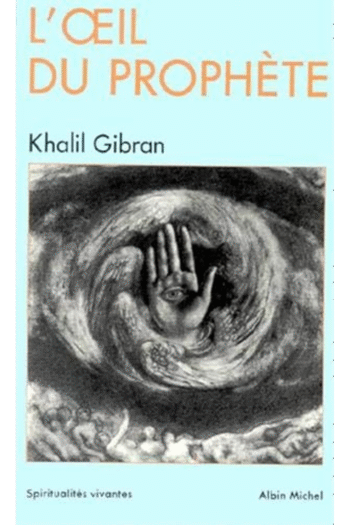Explore the profound implications of our knowledge-driven world with “Limits Of Knowledge Society: Epistemology And Philosophy Of Sciences & Economy.” This collection, arising from the 2010 International Conference in Iai, Romania, (written in Romanian) delves into the boundaries of knowledge within science, economics, and philosophy. Uncover critical analyses of epistemology, the philosophy of science, and the ethical dimensions of the knowledge economy. Examining questions of access, manipulation, and sustainability within a rapidly evolving information landscape, this volume, published by Institutul European, offers a challenging perspective for readers interested in the foundations of knowledge and its impact on society. Perfect for those seeking a deeper understanding of the challenges and opportunities inherent in our modern age.
Limits Of Knowledge Society: Epistemology And Philosophy Of Sciences & Economy
13.52 $
In stock
Delve into the intricate and multifaceted realm of knowledge, science, philosophy, and economics with “Limits Of Knowledge Society: Epistemology And Philosophy Of Sciences & Economy,” a compelling collection of works stemming from the prestigious International Conference “The Limits of the Knowledge Society,” held in Iai, Romania, in 2010. This volume, published in Romanian by Institutul European in 2012, offers a profound exploration of the boundaries and potential pitfalls inherent in our increasingly knowledge-driven world. This thought-provoking book brings together leading scholars and researchers to grapple with fundamental questions about the nature of knowledge itself. How do we define knowledge in the context of the modern information age? What are the inherent limitations of our understanding, and how do these limitations impact our ability to make sound decisions in science, economics, and society as a whole? Within its 299 pages, the book navigates a diverse range of topics, offering insights into: * **Epistemology:** Examining the very foundations of knowledge, exploring different theories of justification, and questioning the reliability of various sources of information. The authors delve into classical and contemporary epistemological debates, shedding light on the challenges of acquiring and validating knowledge in a complex world. * **Philosophy of Science:** Investigating the methods, assumptions, and implications of scientific inquiry. The book analyzes the nature of scientific explanation, the role of evidence in scientific reasoning, and the ethical considerations that arise from scientific advancements. It questions the presumed objectivity of science and considers the influence of social and cultural factors on scientific knowledge production. * **Philosophy of Economics:** Exploring the philosophical underpinnings of economic theories and practices. The contributors critically examine the assumptions about rationality, self-interest, and market efficiency that often underlie economic models. They also delve into ethical issues related to economic inequality, sustainability, and the role of government in regulating the economy. * **The Knowledge Society:** Analyzing the promises and perils of a society increasingly reliant on information and technology. The book raises important questions about access to knowledge, the digital divide, and the potential for manipulation and control in an information-saturated environment. It addresses concerns about the erosion of traditional forms of knowledge and the need to cultivate critical thinking skills in a world dominated by algorithms and social media. The original conference in Iai was notable for its interdisciplinary approach, bringing together philosophers, scientists, economists, and social scientists to engage in a lively and productive dialogue. This book preserves that spirit of collaboration, offering a rich and diverse collection of perspectives on the challenges and opportunities facing the knowledge society. Although written in Romanian, the themes explored within “Limits Of Knowledge Society” resonate far beyond the specific context of Romania. The book is a valuable resource for anyone interested in the philosophical foundations of knowledge, the ethical implications of scientific and technological advancements, and the challenges of building a just and sustainable knowledge society. If you are fluent in Romanian and keen on understanding the deep philosophical issues raised by the knowledge economy, the philosophy of science and the foundations of knowledge, this volume provides invaluable insights.
| Authors | Romania) International Conference "The Limits of the Knowledge Society" (2010 Iai |
|---|---|
| Condition | |
| ISBN-10 | 9736118339 |
| ISBN-13 | 9789736118333 |
| Language | |
| Pages | 299 |
| Publisher | |
| Year published | |
| Weight | 4000 |
Related products
My Broken Language: A Memoir
18.85 $L’OEil du prophte
13.07 $
- Additional information
- Currencies
- USD – United States dollar
- EUR – Euro
- GBP – Pound sterling
- CNY – Chinese yuan
- BRL – Brazilian real
- MXN – Mexican peso
- JPY – Japanese yen
- PHP – Philippine peso
- THB – Thai baht
- PLN – Polish złoty
- CAD – Canadian dollar
- MYR – Malaysian ringgit
- AUD – Australian dollar
- TWD – New Taiwan dollar
- CZK – Czech koruna
- SEK – Swedish krona
- HUF – Hungarian forint
- ILS – Israeli new shekel
- CHF – Swiss franc
- HKD – Hong Kong dollar
- DKK – Danish krone
- SGD – Singapore dollar
- NOK – Norwegian krone
- NZD – New Zealand dollar





